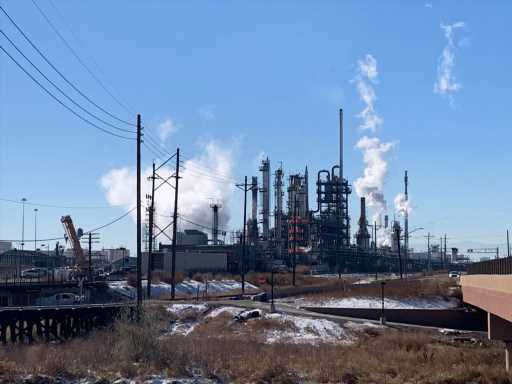Thick clouds of steam billowed over Commerce City on Wednesday morning and combined with a bad smell to cause concern among residents who live near the Suncor Energy oil refinery.
However, representatives from Suncor and the state’s Air Pollution Control Division said there were no excessive emissions reported. Instead, they said the large vapor clouds were the result of cold temperatures, and the odor came from what Suncor described as “sour water transfer,” which is a process for treating water that has been used in oil refining operations.
The Air Pollution Control Division dispatched an inspector to Suncor after receiving reports about the large vapor clouds and strong odor, said Kate Malloy, a division spokeswoman.
“We have not found any malfunctions or incidents that would have caused black smoke. Instead, we understand that there may have been more prominent steam clouds coming from the refinery because of the colder temperatures this morning, so that may be what residents noticed,” Malloy said in an email to The Denver Post.
Amy Fidelis, a Suncor spokeswoman, also said in an email to The Post that cold temperatures, which were in the teens early Wednesday morning, could have made the steam appear darker.
Xcel Energy’s Cherokee Generating Station, which is also in the area, was emitting large steam clouds, too. But Kevin Coss, an Xcel spokesman, said colder weather causes the vapor to be more visible. That steam does not cause an odor.
Fidelis said Suncor employees were investigating a gasoline smell but they believe it was part of the sour water transfer. Sour water is a type of wastewater created during oil and gas refining, and it is transferred to different vessels when it is treated, Fidelis said.
Sour water contains sulfur and can have a strong odor, Malloy said. But that doesn’t mean people who live and work in the area were exposed to toxins.
“It’s important to note that how bad something smells does not tell you how toxic it is or whether it can affect your health,” she said.
Still, the Air Pollution Control Division will continue to monitor Suncor to make sure no violations occurred Wednesday, Malloy said.
Source: Read Full Article
-
Argentinian song insulting English over Falkland War becomes top tune
-
‘Heartbroken’ Neighbours fans farewell show
-
Cops kill Illinois man, 21, and grandpa while trying to stop stabbing
-
Bear that killed Italian jogger, 26, wins stay of execution
-
Biden sports plan angers transgender advocates, opponents – The Denver Post

